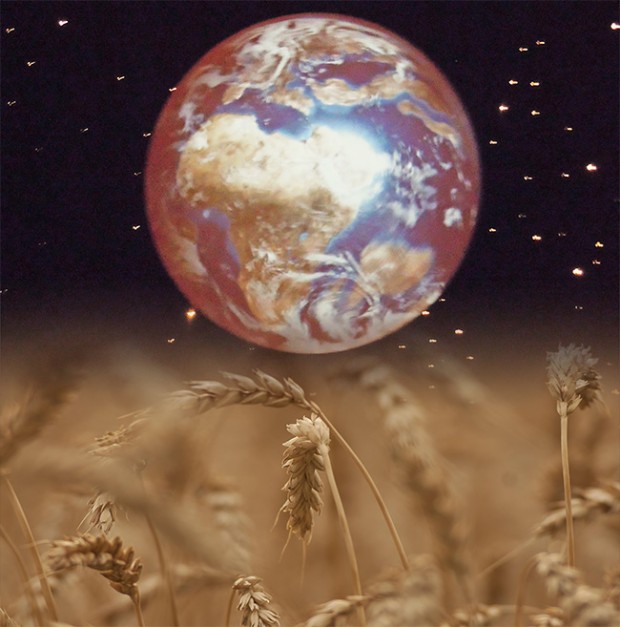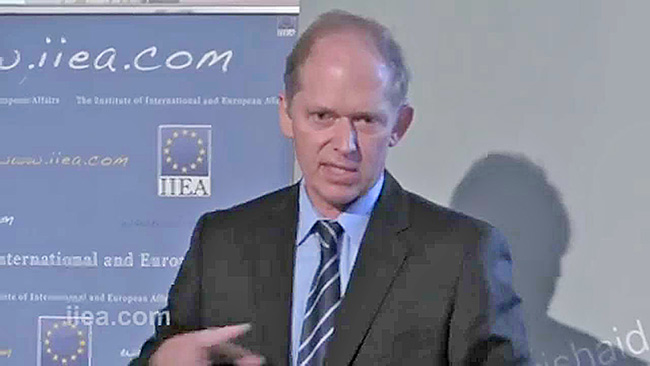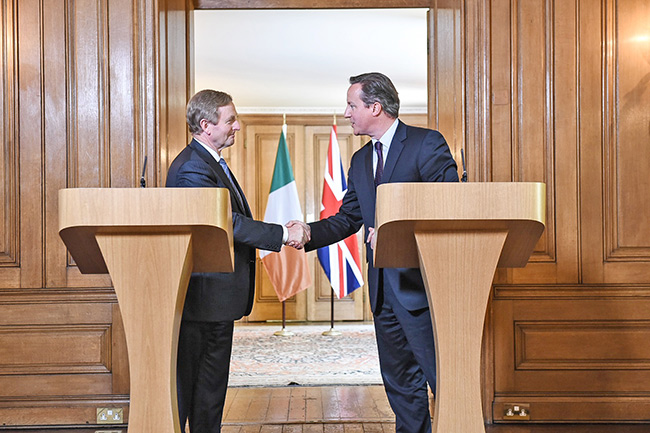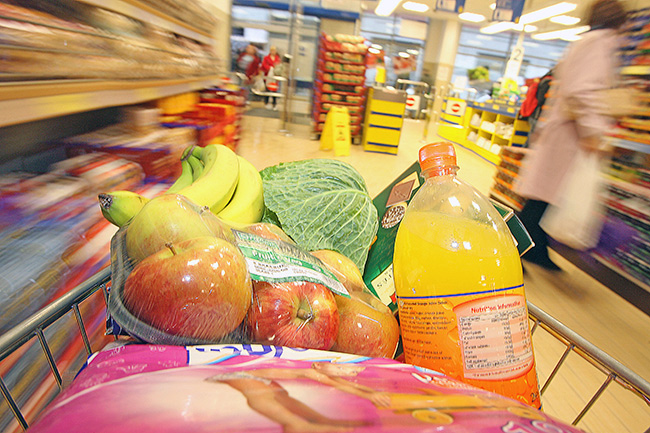1 February 2016 Edition
Sustainable food security
A food harvest for 2020 is a great idea if it is produced sustainably and contributes to the nation’s health and security, argues Robert Allen

• ‘It is clear that we need to find smarter and more sustainable ways to produce more food with fewer resources’
‘By working to make their food system truly sustainable, Ireland, once known for its Great Famine, is now recognised for sustainable, climate-sensitive agriculture and food production’
Sustainable food systems . . .
- Are secure, reliable and resilient to change (including climte change);
- Are bio-economically benign;
- Are energy efficient;
- Are economic generators for communities and regions;
- Are healthy and safe;
- Use water reclamation;
- Use conservation strategies for irrigation;
- Use soil remediation;
- Balance food imports with local capacity;
- Adopt appropriate agricultural practices and crop choices;
- Emphasise organic over conventional farming;
- Contribute to community, ecological and personal health;
- Improve soil quality through bio-fertilisers, bio-manures and waste recycling;
- Support rural and urban food production;
- Ensure that processing facilities are available to artisans, farmers and growers;
- Are celebrated through community events, fairs, festivals and markets;
- Preserve biodiversity in agro-ecosystems;
- Have a strong educational focus to create awareness of food and agricultural issues;
- Are fair-traded.
IT HARDLY SEEMS credible that 20 years ago state bureaucrats were dismissing sustainable food systems, describing those who advocated their introduction into Irish life as “hippies with communist ideas”. Incredible because today they are the buzzwords that celebrate Ireland’s export platform, €10billion and rising, four-fifths of the agricultural produce. To the ignorant, like those bureaucrats of 20 years ago, these words still have no intrinsic meaning, unless you are a farmer who has signed up to Bord Bia’s Origin Green programme, have succumbed to the state’s Food Harvest promise, and can see the benefits in your bank balance.
Apparently not everyone is ignorant.
“Ireland stands out as one example of the transformative power of agricultural development,” announced Jürgen Vögele, a director with the World Bank’s Agriculture Global Practice. “By working to make their food system truly sustainable, a country once known for its Great Famine is now recognised for sustainable, climate-sensitive agriculture and food production. This is due in large part to Origin Green, a national programme that mobilised Ireland’s farmers and food producers to commit to sustainability throughout the supply chain, from farm to fork.”
But ignorance is not always bliss.
Ryan Meade’s response to Jürgen Vögele was informed.
“The success of Origin Green should not be linked to global food security. Ireland’s increased agricultural production is in beef and dairy – these foods meet demand amongst a growing middle class for a more Western-style diet. If this demand continues to increase, the agricultural emissions will continue to grow, regardless of the carbon intensity of production, with no improvement in food security.”

• Jürgen Vögele, a director with the World Bank’s Agriculture Global Practice
Jane Wilde of Healthy Food for All has a slightly different angle – that of personal diet and health, with the food security implications for a small island on a climate-ravished Atlantic fringe.
“Food Harvest is outward looking and perhaps this is why there is so little consideration of the wider needs of people in terms of resilience to food shocks. There is no mention of health or the importance of dietary change and the emphasis is almost entirely on potential economic benefits.”
Wilde argues that “health is and must be central to food and agricultural policy”. It is a subject not for debate because it is obvious. It is only part of the equation that makes up the definition of a sustainable food system, which tends to vary depending on whether you talk to a bureaucrat, ecologist or politician (of the ignorant kind).
The Food and Agriculture Organisation of the United Nations states that a sustainable food system “delivers food security and nutrition for all in such a way that the economic, social and environmental bases to generate food security and nutrition for future generations are not compromised”. The larger view argues that a sustainable food system is a multi-faceted entity (see box).
The European Food Safety Authority (EFSA) has identified climate change as a driver for emerging risks in food and feed safety.
Recent rapid climate shifts are altering the growing seasons (for monocultures in particular). It is either dry or wet, drought or flood. Last summer, central Germany and southern Spain experienced long droughts and high temperatures; Ireland and England suffered low temperatures and constant rainfall. Water is the issue: there is either too much or too little, and this has changed agricultural patterns to the extent that some farmers are questioning the advice imparted by the ‘experts’.
And not only in Ireland.

• Both the Irish and British governments continue to refuse to support independent research initiatives and refuse to listen to the people the EU has stated must be included in the process that will bring about food security
The United Nations have not been impressed with the efforts being made by governments around the world to implement resilient and sustainable food systems. After a September 2014 session the United Nations Environment Programme and the FAO agreed that there was a lack of adequate incentives, available data, methodology and standards, joined-up policy-making, tools, information, knowledge and best practice, and an understanding of what constitutes a sustainable food system.
Five years ago, 21 of the EU’s members launched the Joint Programming Initiative on Agriculture, Food Security and Climate Change to foster collaboration and “work toward alignment of research programming at the intersection of the areas of agriculture, food security and climate change”.
Dublin did not sign up while Belfast (led by Westminster) used the initiative to secure funding for existing projects, ignoring the specific brief. Both the Irish and British governments continue to refuse to support independent research initiatives and refuse to listen to the people the EU has stated must be included in the process that will bring about food security.
The EU, looking at its own member states, came to the conclusion over a decade ago that European countries needed to formulate informed policy on communicating the issues surrounding sustainable food security. With the emphasis on “farming for tomorrow”, the EU argued for communicable network systems. The solutions should not be stored in ivory towers .
An international panel of experts reached the same conclusion.
“Knowledge must be co-produced with farmers, food industry workers, consumers, entrepreneurs, and other social actors and movements who hold a unique understanding of food systems. Actors from fields such as public health, environment and rural development also have much to contribute to the debate on food systems reform.”

• The general food market is loaded with imports supplied by foreign-owned supermarket chains
Evan O’Connell, Communications Officer for the French National Institute of Agricultural Research and for the Analysis and Experimentation on Ecosystems Project, made a passionate plea to EU members to support independent research initiatives and to take seriously the need to integrate the existing research into policy.
“Many believed, until recently, despite climate change and increasing global population, that we had several decades of surplus ahead of us. However, it is clear that pressures on the food supply are growing. The sustainability of agricultural, forested and freshwater ecosystems is under threat due to climate change, loss of biodiversity, land use changes, and disturbance of biogeochemical cycles. It is clear that we need to find smarter and more sustainable ways to produce more food with fewer resources.”
As usual, it is the Germans who have identified one of the major issues – an over-reliance on conventional systems. The German Federal Environment Agency insists that biodiversity is being seriously threatened by intensive farming:
“Agriculture burdens the environment with nitrogen, phosphorus and heavy metals. Broad-spectrum pesticides not only wipe out parasites but also kill other beneficial insects. As a result, this has adverse effects on birds and other mammals, who lose their food resources. The unfortunate result is that instead of realising initial plans to stop and reverse the trend of species loss, more and more species are disappearing from the agrarian landscape.”
The solutions are not impossible or impractical; they are simply being ignored, especially in modern Ireland. And those who are arguing for “strong, local food systems that meet all food needs, generate employment and wealth, and more than anything else enrich biodiversity” are being ignored, because the emphasis among those who run modern Ireland is on large over small and outside over inside.
Small farms, small markets and small shops equal small rewards, hardly worth thinking about. The food economy is geared towards the export market, while the general food market is loaded with imports supplied by foreign-owned supermarket chains. The bureaucrats and politicians argue that large and export are the policy themes that have saved the economy, and that the land has always supported intensive farming and monocultures.
The reality is that the soil is bad or poor in most of the country, which is why it is used for grazing in the uplands and for raising feed crops in the lowlands. It is generally waterlogged, does not drain and is being constantly eroded with hardly any attempts being made at reclamation and remediation. Flooding is now constant, causing further erosion and loss of fertility.
The deforestation during the years of foreign rule altered the ambient climate and now the lack of trees is a major issue, with precipitation out of balance. As a result, biodiversity does not exist in areas where there should be symbiosis and regeneration.
The statement by the Food and Agriculture Organisation of the United Nations is beginning to sound like a lament:
“A sustainable food system is a food system that delivers food security and nutrition for all in such a way that the economic, social and environmental bases to generate food security and nutrition for future generations are not compromised.”
It is a lament we have heard before – during the tragic decades of the 19th century when Irealnd’s food security was completely compromised.
Robert Allen is a partner with the Sustainable Food Systems Consortium




